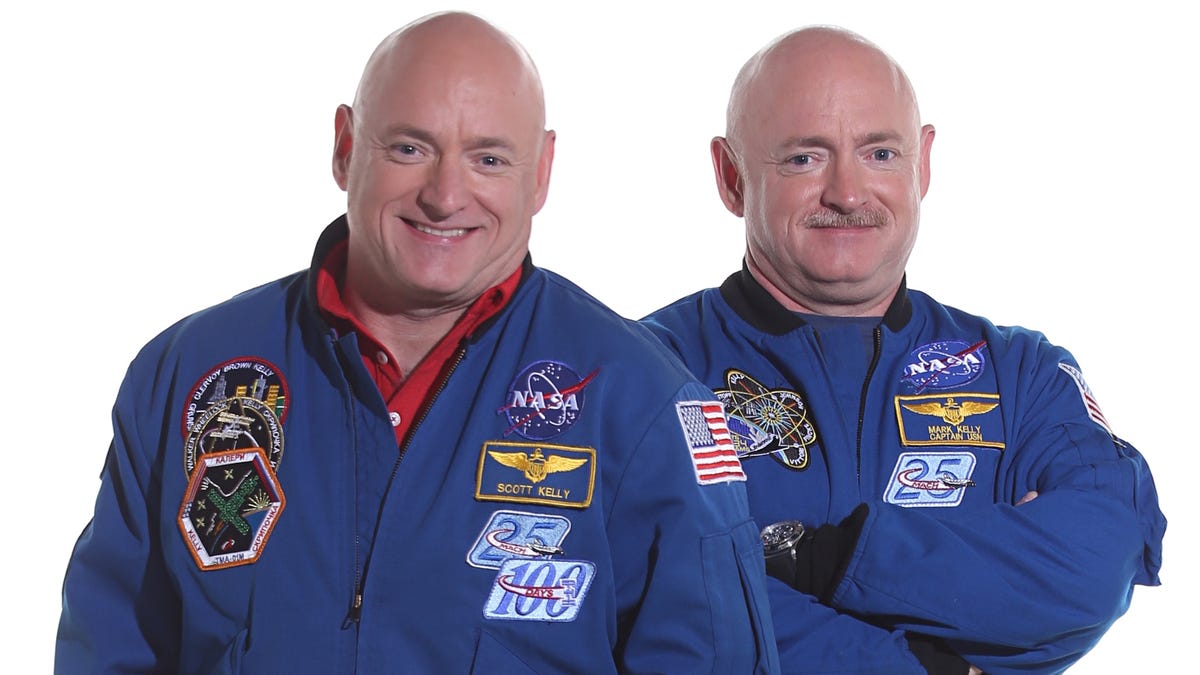Is space the fountain of youth? NASA twins study may provide clue
A study on twin astronauts Scott and Mark Kelly is looking at how Scott's year in space affected his body. One early finding surprised researchers.

NASA's twin astronauts Scott (left) and Mark Kelly.
Astronaut Scott Kelly spent a year in space aboard the International Space Station while twin brother and former astronaut Mark Kelly stayed on Earth. Meanwhile, scientists studied both men for hints of how extended time in space might affect the human body.
The researchers have started to share some of the preliminary results from this unprecedented study and one tidbit in particular caught my attention. Scott Kelly's telomeres, which are stretches of DNA that act as a "cap" at the end of chromosomes to protect them from deterioration, grew to be longer than his brother's during his time in orbit.
What's interesting about this is that telomeres are associated with aging and longer telomeres are associated with longevity. Stress is one of the things that can shorten telomeres over time. So it was surprising to find that the stress of long-term space travel did not seem to negatively affect Scott Kelly's telomeres.
"That is exactly the opposite of what we thought," Susan Bailey, a radiation biologist at Colorado State University working with NASA to study the effect of space on telomeres, told Nature.
According to NASA, Scott Kelly's space-stretched telomeres could be related to the increased exercise regimen and diet while aboard the space station that's hyper-focused on keeping astronauts healthy. But when he returned to Earth, his telomeres began to shorten again.
So does this mean that living in space or in microgravity could be the key to living longer? After all, space seems weird, foreign and stressful, but in reality it literally takes all the stress of living with gravity off your back.
At this point, a data set of just one human twin isn't nearly enough to be able to draw any conclusions about the impact of space travel on telomeres and aging. But it is an interesting and counter-intuitive data point that will inspire further research.
If space really does have a positive effect on telomeres, that's potentially good news for future missions to Mars and even deeper space. Now we just have to tackle all the other ways that pretty much everything beyond our planet conspires to kill us.
A summary of the study's results is planned for publication later this year.
Solving for XX: The industry seeks to overcome outdated ideas about "women in tech."
Crowd Control: A crowdsourced science fiction novel written by CNET readers.

